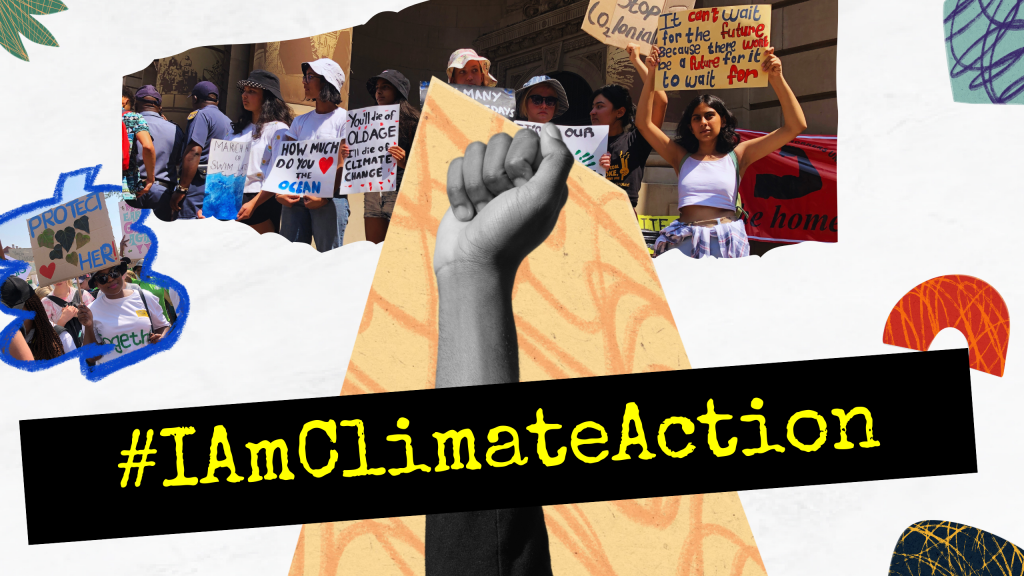For the longest time, we have been taught to look after our planet.
Whether it be in the three Rs of recycling, turning off the water while brushing our teeth, or the obligatory “do not litter” that teachers constantly drill into our heads – all of these have been central to the basics of our green education.
With the passage of time and the further deterioration of earth, we have seen an increase in environmental concerns and the consequent urge to care for the natural world. This has most evidently been exemplified through the large-scale commercial shift, from traditional plastic products (such as straws and grocery bags) to those manufactured from paper. As well as in the growing calls for greener transportation practices, such as carpooling – in an attempt to minimise the amount of greenhouse gas emissions.
There have also been significant advancements toward climate-proofing education systems. As illustrated through the creation of school-based eco-clubs, and the limitation of immediate carbon footprints on educational premises by making energy-saving changes to school heating, cooling, lighting systems and so on.
But what if I told you that, despite all of this, the world is still dying? What if I told you that despite all of this, “9.8 million of the 30.1 million new weather-related internal displacements affected children”?
This is our rather grim reality, as we are finally witnessing the detrimental effects of global warming wreaking havoc upon humanity at an alarming rate. From droughts in Sub-Saharan Africa, flooding in KwaZulu-Natal right here at home in South Africa, and Pakistan, to heatwaves in India, storms in Japan and increased temperatures in Afghanistan. The impacts of this phenomenon have become inescapable to humans and nature alike.
Whilst gradual deterioration has continued to engulf our planet as a whole, the right to education has emerged as one of the many human rights to suffer at the hands of climate change. This has reportedly stripped countless children of their protections, by not allowing them to attend school, which— given the fundamentality of said right — has been a rather hard pill to swallow. More especially so because education is vital for socio-economic prosperity, as far as it broadens abilities, expands work opportunities, promotes gender equality and provides hope and new prospects to many people, particularly those in highly impoverished countries.
We cannot pit the adversities effectuated by climate change against each other, as they are all catastrophic. It goes without saying that one of the phenomenon’s most devastating consequences lies in the role it plays in the further perpetuation of human suffering within the developing world, such as droughts increasing the risk of food insecurity. Despite it being a crisis of global proportions, its effects remain unequally spread across the four corners of the world. With the least responsible parties often bearing the brunt of the destruction it has on the world. Most higher-income countries (being some of the main perpetrators) seldom suffer by the same token, seeing as they have more resources with which to mitigate the effects of climate change, relative to lower-income nations.
Consider how long it would take to rebuild schools that took years to erect in Haiti, following a hurricane spurred by climatic abnormalities.
Let us not forget the agricultural households who would not only stand to lose their food security but also income that could have been used to pay school fees. It might seem implausible for you to picture everything I’ve said – I mean, some may even consider the things listed as hyperbolic extremes of climate change. I nonetheless implore you, fellow earthlings, to understand that this in itself is just a mere glimpse into the plethora of harsh realities faced by many people around the world due to the ongoing climate crisis.
These are the realities that many people face every day, and if nothing is done, they will only worsen, and maybe even get to the point where they may become a reality for everyone – you and I included.
So, what can be done to avoid this rather bleak eventuality from coming to fruition? As much as we as ordinary people must do our part to keep the environment clean, the responsibility also lies with us to hold all governments accountable. It is common knowledge that global civil society (comprising a vast array of NGOs and NPOs) has often lobbied, advocated, campaigned, marched, educated, and raised awareness about the effects of climate change. While their agency has drawn attention and cries shaken up rooms, their demands have unfortunately often fallen onto deaf ears. The reason is, the fact that we can only do so much in our limited capacities as citizens, more especially so because ultimately policy change is the key to sustainable change, and those in positions of power are the ones who have the authority to effect such changes.
The reduction of greenhouse gas emissions is a perfect starting point in this regard, as it is central to all climate change solutions. Forests and oceans play important roles in regulating the climate by absorbing carbon dioxide. This, therefore, means to push for the desired change, the relevant actors must play their part and carry out their responsibilities. At the same time, we, humankind, must collectively put pressure on governments and businesses to by:
- Shifting the economy away from fossil fuels like gas, coal, and oil and toward renewable energy.
- Protecting forests and oceans by imposing green taxes on harmful environmental policies.
- Collaborating to bear the burden of climate change; richer countries must provide financial and technical assistance to poorer countries and must be held accountable for their promises.
- Pursuing and promoting sustainable practices/development.
Beyond the above, there are numerous other actions that states and businesses can take to mitigate the effects of climate change on a large scale. We are all global citizens as people on earth, and when governments fall short, we must raise our voices in protest. What you think is not important to you is likely important to someone else, but they may not have the voice to fight. So, why not speak up for them if you can – sign petitions, send urgent tweets and emails, support organisations that advocate for human rights, and take up as much space as you can in this fight for climate justice.

Mulanga Valerie Muk’mar is an accounting science student at The University of the Witwatersrand.
**This article was contributed by a guest blogger. This blog entry does not necessarily represent the position or opinion of Amnesty International South Africa.


